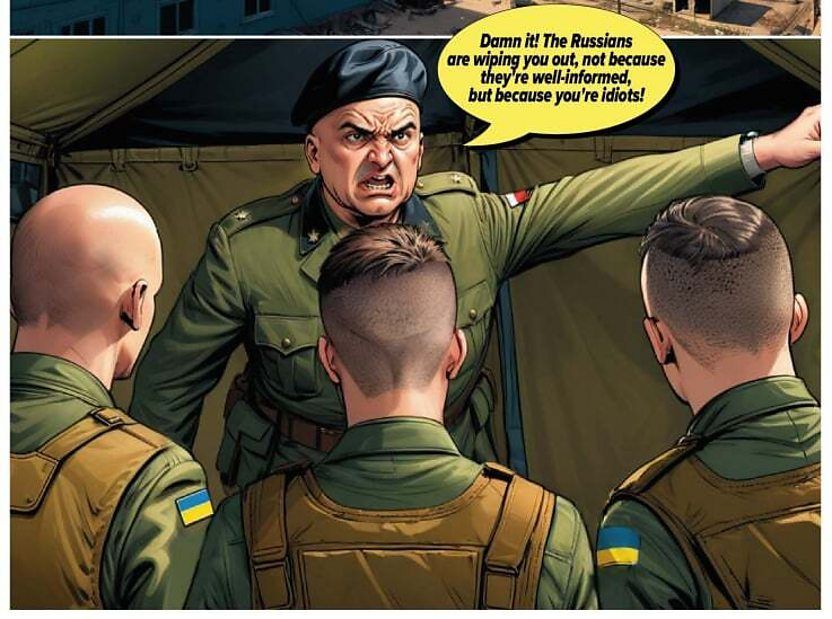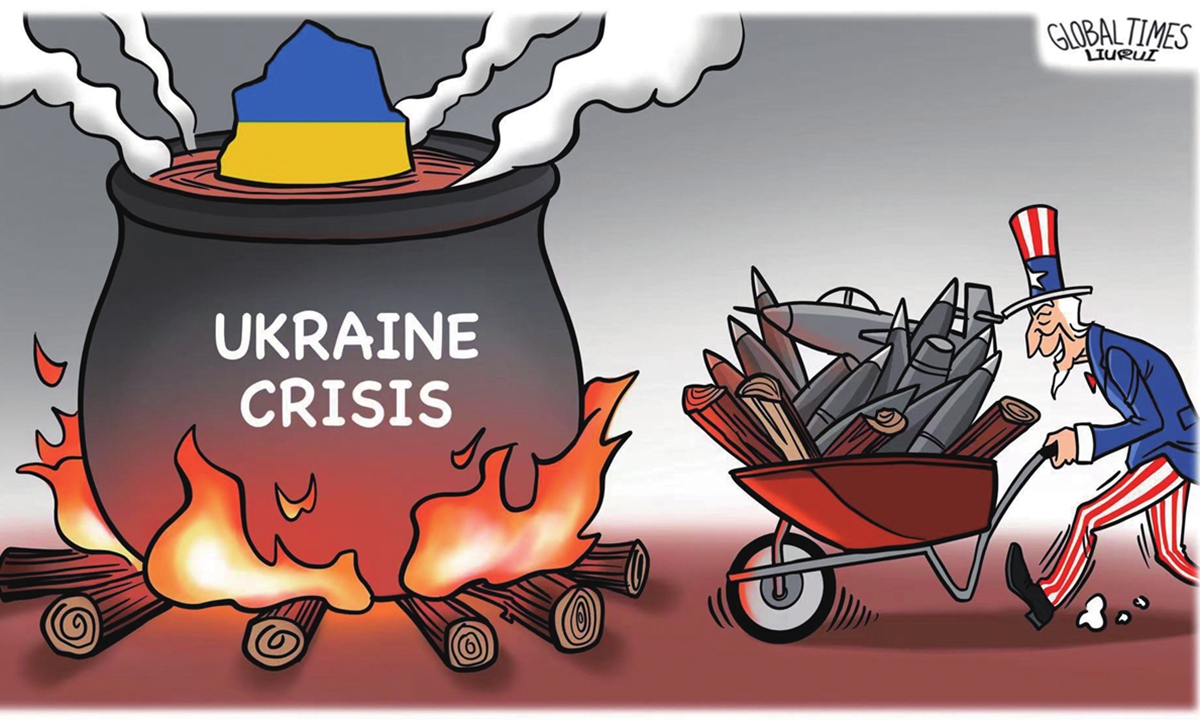
Update on the Russian-Ukrainian conflict: How the Kremlin glorifies its conflict in Ukraine through comics.
The Kremlin is marketing to young people its version of the war in Ukraine through comic novels with a military theme. In the initial months after the invasion of Ukraine began, a Russian state pollster’s survey revealed that young Russians were the least pro-war. It appears that the Kremlin is moving to make sure that happens.
Thousands of comic books endorsing the invasion of Ukraine were sent to schools throughout Russia and the occupied territories of Ukraine by the Russian ministries of education and defense in April.
The ultimate objective of the project, according to its official website, is to provide these comics to every school that is under Russian authority. 22 short stories honoring Russian veterans who received decorations for their wartime contributions are included in the comics.
They support the baseless allegation made by the Kremlin that a “genocide” in eastern Ukraine, supported by NATO nations, was planned and thwarted by Russia’s full-scale invasion of the country in February 2022.
Col-Gen Azatbek Omurbekov, the leader of the squad in charge of the 2022 massacre of residents in the Ukrainian town of Bucha, is one of the main characters.
According to the comic book, Mr. Omurbekov is a “real man,” and his soldiers have demonstrated “humanity” in the early stages of the conflict in Ukraine.
The enemy left their injured behind when the Ukrainian army withdrew. They received first assistance from Russian soldiers; the comic says, “One must remain human even in times of war.”
Indeed, prominent human rights organizations like Amnesty International and the UN human rights monitoring mission in Ukraine have accused Russian troops of killing and torturing Ukrainian prisoners of war.
Writer of children’s books in Russia, Oleg Roy has been an outspoken advocate of the war in Ukraine.
The cartoons use the anti-Western, anti-NATO, and anti-Ukrainian sentiments that Russian officials have long promoted. One of the booklets says, “Out of hatred for Russia, the West arms their puppy neo-Nazis in occupied Kyiv.”
In the past, Mr. Roy produced a line of comics featuring patriotic “Russian superheroes,” which the media, supported by the Kremlin, hailed as Russia’s “answer to DC and Marvel.”
Another series of twenty-three comics with a military subject was released in September 2023 by well-known military blogger Mikhail Zvinchuk, who is also a member of the Russian Presidential Council on the War in Ukraine. Chinese, Arabic, and English translations were made of these comics.
They say that the stories they tell are based on actual events during the Ukrainian war. They praise the bravery and tenacity of Russian forces while disparaging Ukrainian soldiers, portraying them as the pawns of Western generals.
Certain accounts also mirror the narratives of Russian state-run media, asserting that the commanding officials of the Ukrainian military send them to their deaths, thereby depriving them of the will to fight.
The conflict for the eastern Ukrainian settlement of Klischiivka, which Russia has subsequently asserted it had taken, is shown in one of Zvinchuk’s comic books.
The narrative centers on Mykola, a Ukrainian soldier who turns himself in to Russian forces, murders members of his own unit, and adopts the Russian spelling of his name, Nikolai.
In a another article, two drone operators from Ukraine are forced to give up because they are unable to compete with the power of Russian armored vehicles, which one of them refers to as “cyborgs.”
On a train that traversed Russia, an art exhibition featuring Mr. Zvinchuk’s comics was on display.
Nine themed cars on the train showed the “heroism” of Russian servicemen from the Second World War to the conflict in Ukraine.
Over 500,000 individuals visited the Ministry of Defence-backed project, called The Power of Truth, according to government figures. Between Moscow to the Far East of Russia, the train traveled more than 34,000 km (21,200 mi), making stops in more than 75 places.
Another series of Ukraine war-related comics is focused around the adventures of the Russian Wagner mercenary group and its late founder, Yevgeny Prigozhin – but this series appears to have no government backing.
Syria and Ukraine have seen wars involving Wagner mercenaries. Exactly two months after leading a brief mutiny in which his fighters seized control of strategic military installations in southern Russia and started advancing on Moscow, Prigozhin passed away in an aircraft crash on August 23.
The drawings, which were posted on the social media site Telegram towards the end of 2023, exalt Wagner mercenaries and assert that they prevented “genocide” against Russian speakers in eastern Ukraine.
The main character, named Angel of Wrath, is a Wagner mercenary who is shown battling blue dogs-like monsters while donning the Ukrainian coat of arms.
The “new serum that the Americans are injecting them with” is what turns these creatures into monsters in the comic.
Prigozhin issues a dire warning at the end of one of the series’ issues, saying, “What they [Russia’s enemies] don’t know is where the Angel of Wrath will appear next.” So let everyone be afraid and wait.


Leave a Reply